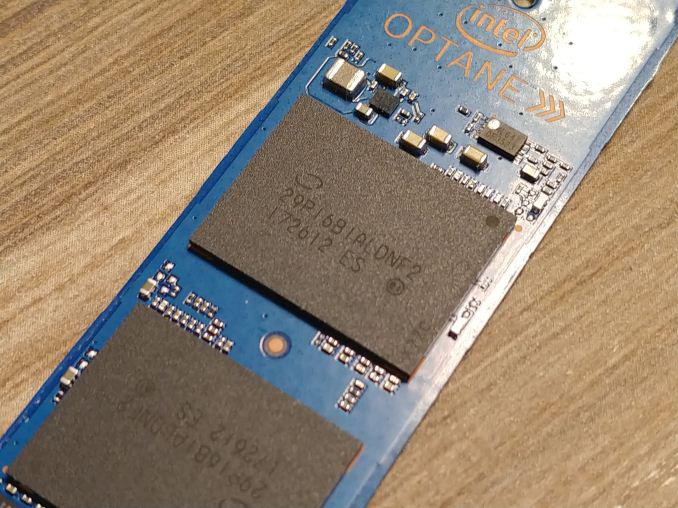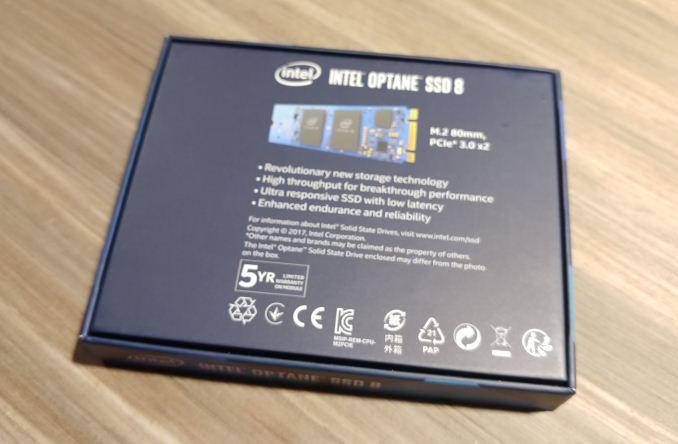Intel announced the release of a new Optane SSDs series, the 800P Optane SSDs are positioned between the Optane Memory caching modules and the Intel Optane 900P SSDs.
The Intel Optane 800P series SSDs will be become available in a 58GB and 188GB capacity, both in an M.2 form-factor. They use a PCIe 3.0 x2 interface, similar to the Optane Memory caching modules. In fact, they even look similar. Intel still feels functionality should be a dual-drive setup, where the Optane 800P modules are backed by an HDD or traditional SSD. This way users can benefit from the low latency of Optane technology while having sufficient capacity at whole. The drives are rated at 200GB writes per day for 5 years. The Optane SSD 800p comes optimized for desktop performance.
The Optane SSD 800p may be able to deliver good bandwidth, but the controller and PCIe x2 uplink seem to limit performance metrics. Intel has embargoed the performance metrics of the Optane 800P series. Neither did they reveal any word on pricing, they, however, will become available in March this year.
Intel To Release affordable Optane 800P series SSDs in March




